Thanks to my readers' generosity, all my articles are free to access. Independent journalism, however, requires time and investment. If you found value in this article or any others, please consider sharing or even becoming a paid subscriber, who benefits by joining the conversation in the comments. I want you to know that your support is always gratefully received and will never be forgotten. Please buy me a coffee or as many as you wish.
The Colonel House Report (1919)
The British Secret Service Report No. 1919, often called the "Col. E. M. House letter," is an official and authentic account of the First World War, detailing the agency responsible for it and its underlying purpose.
The authorship and purpose of the report, however, remain shrouded in mystery, adding an intriguing layer to its historical significance.
When Congressman Jacob Thorkelson read the letter into the Congressional Record on October 13, 1919, Congressman R. Ewing Thomason pleaded like a schoolgirl that Thorkelson prove or substantiate that Mr. House wrote the "Col. E. M. House letter.”
This is the same attack vector used on people who referenced the Protocols of the Learned Elders of Zion. The tactic is designed to prevent anyone from examining the work's historical accuracy on its merit and then determining its veracity of authorship. (This is precisely why I published Stealth Power and the Illusion of Democracy.)
Spoiler Alert: Metadata analysis leads me to believe that anytime anyone gets too close to Anglo-American Oligarch’s Intelligence Networks, including MI6, MI5, Special Operations Executive (SOE), or whatever handlers, assets or cover operations are threatened with exposure, those people get labeled a Nazi, Anti-Semitic, Fascist, Alt-Right, Denier, Hater, whatever.
The explanation for this is the very sophisticated and centuries-long practice of hiring extremely capable Jews as handlers for the most sensitive oligarchical programs, including banking, media, and organized crime. Through the use of Jewish handlers as a form of human shield, the oligarchy has an almost perfect defensive position from which to defend against attacks. To that end, organizations like B’nai B’rith and the ADL were created to deal with anyone like Thorkelson.
The “Jewish Telegraph Service” labeled Thorkelson a ‘lame-duck “Gauleiter” of the small House pro-Nazi bloc.’
Thorkelson understood how the libel against him was weaponized, but his explanations were ignored by a media that 1939 was already completely controlled by Empire Oligarchs.
While the "Col. E. M. House letter" covers a wide range of topics, the focus is on "Imperial Unity" (read subversion of the American Government), J.P. Morgan & Company, British duplicity, and the League of Nations.
Although commonly referred to as a letter, it presents as an official report from a British Secret Service officer — further supported by being written on British Consulate stationery — asserting its authenticity. The report, also known as British Secret Service Report No. 1919, provides curiously accurate insights into British actions and objectives following the war.
The claim is that the original was written and read into the Congressional Record in 1919. After some back-and-forth, it was removed, put back in, and then disappeared (from the Congressional Record). Later, it was published by the American Publishing Society, Bremerton, Wash.
In any case, if one has done any research on “Col.” Edward Mandel House (He wasn’t a Colonel), most of the information in this report matches events and information that did happen after 1919, so in 2024, it seems more likely than not, that House wrote the report (making him a spy, espionage agent, and traitor).
This letter is one of many interesting pieces of information Thorkelson brought to Congress. He also published Steps Towards a British Union at his own expense in the Congressional Record.
What follows in this post is a summary of the Steps Toward a British Union and the Col. House Letter. I’ve included a single footnote, as I was unable to verify Cecil Rhodes's quote in the House letter. That said, the quote appears to be a paraphrase of things that were written by Rhodes, which are included in the footnote.
Steps Towards a British Union
Steps Toward a British Union by J. Thorkelson, presented in the U.S. Congress in 1940, provides a detailed warning about the increasing influence of British imperialism over the United States. It describes the strategic efforts by powerful figures and institutions to undermine American sovereignty, reuniting the United States with the British Empire under a global government dominated by British and international financial elites. It also describes the deliberate influence of key individuals, organizations, and financial institutions, all working to advance British global dominance, often disguised under the noble cause of world peace.
📖 The Vision of Cecil Rhodes
Cecil Rhodes vision of British global dominance shaped the political agenda of the British Empire. Rhodes, the British imperialist and diamond magnate, believed in the superiority of British civilization and envisioned a world where Britain would dominate politically and economically. Rhodes sought to recover the United States as a part of that empire. This was a central theme in his 1877 will, where he described his plans to unite the world under British rule.
Other Rhodes Scholars include: Michael Callahan, Walter Isaacson, Gary Johnson, Trevor Mundel, Walt Rostow, James Woolsey, Dean Rusk, Robert Reich, Ashton Carter, Wesley Clark, Harlan Cleveland, Elizabeth Cousens, Hedley Donovan, William Yandell Elliott, Clarence Streit, and many others.
Rhodes saw the reunification of the U.S. with Britain as essential to maintaining global peace. He established the Rhodes Scholarships to realize this vision, which brought American students to study at Oxford University. The goal was to train future American leaders who would work towards advancing British ideals. The text states that the influence of these scholarships would shape American leadership, fostering a strong pro-British sentiment.
💰 The Role of Andrew Carnegie
Andrew Carnegie, one of the wealthiest men of his time, shared a similar belief in the reunification of Britain and the U.S. His book, Triumphant Democracy, outlines his hope for a future British-American union. Carnegie believed this would benefit both nations economically and politically. Carnegie spent vast amounts of his fortune funding educational and international organizations to promote this agenda. Through institutions like the Carnegie Endowment for International Peace and the Church Peace Union, Carnegie sought to shape American public opinion, particularly favoring global peace under British leadership.
Carnegie’s financial contributions extended to international diplomacy and the promotion of global peace efforts that were essentially aligned with British imperial interests.
🏦 Financial Control and the Federal Reserve Act
The Federal Reserve Act of 1913 was a key turning point, supporting the importance of financial control as a means of establishing British dominance over the U.S. It placed the U.S. financial system under the control of international bankers, specifically those linked to the Bank of England. The establishment of the Federal Reserve allowed British interests to exert significant influence over American economic policy, ensuring that U.S. financial decisions were aligned with British goals.
The Federal Reserve system became a tool for international bankers, particularly those connected to British financial institutions, to manipulate American finances and control the nation’s economic future.
🌍 The Pilgrims Society and Anglo-American Unity
The formation of the Pilgrims Society in both London and New York emphasized its role in fostering pro-British sentiment among American elites. Established in 1902, the Pilgrims Society comprised influential British and American individuals, including diplomats, financiers, and business leaders. The society’s mission was to strengthen the relationship between the United States and Great Britain, promoting the idea of an Anglo-American union.
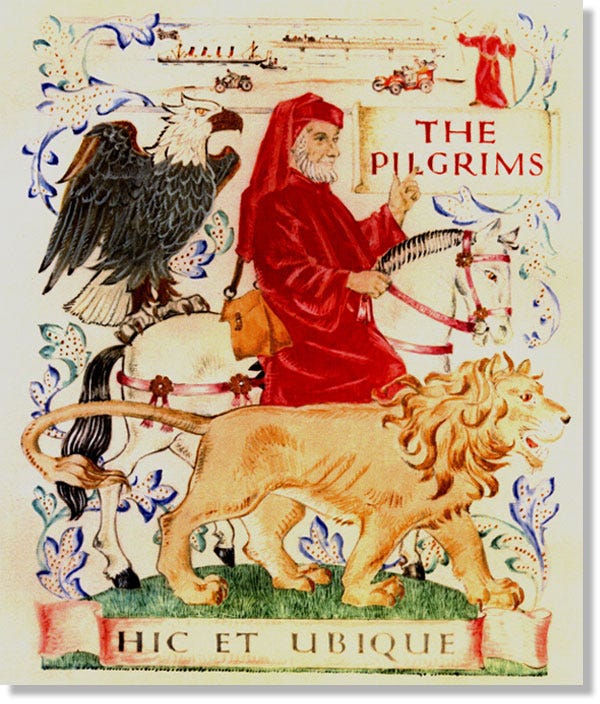
The Pilgrims Society played a key role in developing public opinion in favor of closer ties with Britain, particularly during World War I, when it worked to involve the United States in the conflict on Britain's side. This organization was instrumental in shaping American foreign policy to align with British interests.
⚔️ World War I and British Propaganda
The United States’ entry into World War I was heavily influenced by British propaganda. British efforts, led by individuals like Lord Northcliffe, aimed to convince the American public and political leaders that supporting Britain in the war was essential for global stability. This was not a war to defend American interests but to protect British dominance.
Lord Northcliffe is described as leaving behind a vast network of agents and a substantial financial legacy to continue spreading pro-British propaganda in the United States even after the war ended. This propaganda sought to embed pro-British sentiments deeply into American society, particularly among its political and intellectual elites.
🏛️ Educational Influence and the Rewriting of History
Education is a crucial battleground for British influence over the United States. Institutions like the American Historical Association were financially supported by British interests, particularly through Carnegie’s endowment. The goal was to rewrite American history in a way that glorified Britain and diminished the significance of American independence.
The Rhodes Scholarships and other British-funded educational initiatives were part of a larger strategy to shape the worldview of future American leaders, ensuring that they would adopt pro-British policies in foreign and domestic matters. The rewriting of history, particularly through educational institutions, is a key method by which British influence is cemented in the United States.
🛤 The Panama Canal and British Control of Trade Routes
The Panama Canal, a strategic asset for American commerce and military operations, is another key location discussed in the text. British diplomats, including Lord Lansdowne, secured agreements that allowed Britain equal rights to use the canal despite its strategic importance to the United States. This agreement ensured Britain would maintain control over key global trade routes, even as American influence in the Western Hemisphere grew.
This diplomatic maneuver was part of a broader strategy to ensure that American economic interests remained subordinate to British global dominance.
🌐 Global Governance and the League of Nations
The establishment of international bodies like the League of Nations furthers the effort by British and globalist elites to weaken national sovereignty, particularly that of the United States. The League of Nations was designed to create a framework for global governance that would allow Britain and its allies to maintain control over world affairs.
While ostensibly created to promote global peace, these international organizations are tools for advancing British imperial interests and ensuring that the United States remained aligned with British policies on the global stage.
🏛 Nicholas Murray Butler and International Diplomacy
Nicholas Murray Butler, president of Columbia University and a key figure in the Carnegie Endowment for International Peace, for his role in promoting Anglo-American unity through international diplomacy. Butler’s participation in international peace conferences and his advocacy for global governance are described as part of the broader British strategy to influence American foreign policy.
Butler’s work with international organizations like the Brookings Institution and his role in shaping the international gold standard are also highlighted. These efforts ensured American financial and diplomatic policies aligned with British interests.
Steps Toward a British Union outlines a comprehensive narrative of British imperialism, financial dominance, and the systematic efforts to reunite the United States with the British Empire. Through the work of key individuals, organizations, and institutions, the text presents a cohesive argument that American sovereignty was being eroded in favor of a global British-led order. Educational influence, financial control, diplomatic agreements, and international organizations all played roles in advancing this agenda, ensuring that the United States would remain under British influence for the foreseeable future.
The Colonel House Report (1919)
Imperial Unity
British Consulate
New York City
June 10, 1919
"The Right Honorable David Lloyd George,
Sir:
I was highly honored by your personal letter of May 24 last (written same week as Paris meeting), and wish to thank you for the cordial expression of approval of my work which it contained. You were very good enough to require from me a frank and confidential account of the campaign conducted under my direction in this country, together with such suggestions as might further help to lead it speedily to a successful conclusion. As the campaign had been under way for a considerable time before you were called to direct the destinies of England, I shall review it from its commencement, and, emboldened by your sanction, I shall freely make whatever suggestions seem to me good.
From the moment of my arrival here, it was evident to me that such an Anglo-American alliance as would ultimately result in the peaceful return of the American Colonies to the dominion of the Crown could be brought about only with the consent of the dominant group of the controlling clans.
For those who can afford the universities, we are, as I have already mentioned, plentifully supplying British-born or trained professors, lecturers, and presidents. A Canadian-born admiral now heads the United States Naval College. We are arranging for a greater interchange of professors between the two countries. The student interchange could be much improved. The Rhodes scholarships are inadequate in number. I would suggest that the Carnegie trustees be approached to extend to American students the benefits of the scheme by which Scottish students are subsidised at Scottish universities. If necessary, a grant from the treasury should be obtained for this excellent work, which however, should remain for the present — at least outwardly — private enterprise...
Through the Red Cross, the Scout movement, the YMC, the church, and other humane, religious, and quasi-religious organizations, we have created an atmosphere of international effort which strengthens the idea of unity of the English-speaking world. In the co-ordination of this work, Mr. Raymond Fosdick, formerly of the Rockefeller Foundation, has been especially conspicuous.I would also like to mention President Nicholas Murray Butler of Columbia University, who has eloquently advocated this form of internationalism and carefully emphasize its distinction from the false internationalism which is infecting the proletariat.
The Overseas Club in this country now contains nearly hundred thousand pledged members with a Journal of their own. Our thanks are due to Lord St. George's, St. David's, St. Andrew's, and Pilgrim Clubs, together with the Daughters of the Empire. the Prince of Wales Fund, and the other association and guilds connected with our multitudinous war charities enable us to pervade all sections and classes of the country, and provide us with a force of empire builders whose loyalty an services are both invaluable to us and highly appreciated by the native colonists.
The censorship, together with our monopoly of cables and our passport control of passengers, enables us to hold all American newspapers as isolated from the non-American world as if they had been in another planet instead of in another hemisphere The realization of this by the Associated Press and the other universal news gatherers — except Hearst — was most helpful in bringing only our point of view to the papers they served.
British-born editors and reporters now create imperial sentiment in most American newspapers. As their identity and origins are not usually known, they can talk and write for us as Americans to Americans.
Below that level, imperial unity cannot be securely established upon the debris of the Constitution here. We will not passively permit this unity to be now menaced when it is all but perfect. Has not America, while still maintaining an outward show of independence, yielded to our wishes in the Panama Canal tolls and Canadian fisheries' disputes, as was fitting and filial? Was not America happy to fight our war in Europe? Was not America, like Canada, willing not only to pay her own war expenses but also to loan us money for ours? Was not America, like Canada, content to seek nothing in return for her war duty, so long as the motherland was completely indemnified in Egypt and the rest of Africa, in Persia, Mesopotamia, Syria, and elsewhere? Was not America as proud to be honored by knighthood and lesser titulary distinctions, as Canada was, or, rather, more proud?
Has not President Wilson cancelled the big Navy program and dutifully conceded to us the command of the seas, confident that we shall defend America against all future foes that may threaten our supremacy, just as we defended America and Canada against Germany? In matters lingual, legal and financial, fiscal, commercial, social evangelical, administrative, martial, naval, educational — are not in all these matters the established relations of America to England, in kind — if not precisely in degree — identical with the relations of the other colonies and dominions to the Crown? Indeed, I might justifiably sustain the thesis that so-distant American Republic is now more happily and more closely bound to the Empire than are, for example, the ungrateful and insolent colonies which lately were the Boer Republics.
As long as President Wilson, with our Canadian-born Secretary of the Interior, Mr. Franklin Lane, with our Scotch-born Secretary of Labor, Mr. W. B. Wilson, and with our London-born Mr. Samuel Gompers, — now controls the administration, imperial unity will daily grow more intimate and more perfect. But I regret to inform you that our committee on American Elections has reported (Appendix 38) that no matter how lavishly we finance the next election, the Wilson administration will pass, and with it, perchance, that absolute administrative control over the Legislature, which has meant so much to us. Willful, wanton, and wicked men will unite in the next election with labor and those industrialists whose profit-patriotism ratio has been allowed to fall below the threshold of loyalty to imperial unity. These combined forces of disorder will seek to elect a legislature which will attempt to make the administration responsible to it, instead of to us and our auxiliaries, and will strive to rend the bonds which bind this colony to the motherland, for the sole, selfish, and seditious purpose of erecting a separate, national, economic unit independent of us — and even perhaps, competing with us. We must, therefore, hasten to remove from this legislature, with the aid of our supporters here, such of its powers as could be used against imperial unity.
J. P. MORGAN & CO. ARE BRITISH AGENTS
In the financial world the Anglo-American alliance is a well-established fact. And as the consortium for China, and the security company for Mexico show, our brokers and their aids have become the unchallenged financiers of the world. We have been particularly fortunate in our fiscal agents here, Messrs Pierpont Morgan & Company. The commissions they charged, both as our brokers and purchasing agents no doubt were high enough to warrant their summary treatment at the hands of Mr. Balfour during his visit here. But they advantageously placed our many bond issues and every American holder of these bonds having now a stake in the Empire is a defender of its integrity and a potential supporter of its extension over here. Their services in putting this country into the war have not been altruistic, but they were nonetheless effective. They contributed liberally to our Americanization campaign. They ousted Miss Boardman, and through Messrs. Taft and H. P. Davidson they nationalized and directed the American Red Cross, and then internationalized it under the direction of Mr. H. P. Davison. Through Mr. Thomas Lamont they purchased Harpers Magazine and the New York Evening Post. Through advertisers they control, they have exerted widespread influence on newspaper policy. Messrs. Lamont and Davidson gave you valuable aid at the peace conference. They loaned $200,000,000 to Japan that our ally might build a fleet to compete with America on the Pacific carrying routes. Their attempts to retain for us control of the international mercantile marine are well known to you. And I would he amiss if I did not remind you that they relieved the government of considerable embarrassment by pensioning worthily the widow of our late Ambassador Sir Cecil Spring-Rice, at a time when the antagonism of Lord Northcliffe made it impossible for us officially to do so. As the greater part of their capital is invested within the Empire. the Government of His Majesty will doubtless have opportunity to appreciate the value of the services of Messrs. Pierpont Morgan & Company.
BRITISH DUPLICITY
Through our fiscal agents here and our aids who act for other Allied countries, as Sir Clifford Sifton acts for Rumania, we have become the world's purchasers. Moreover, the war has made us the custodian of the greater part of the world's raw materials. With moneys lent to us by the American Government for war purposes, we have. acting through quasi-American companies by the aid of Mr. Connor Guthrie, obtained control of the large oil fields in California and in Costa Rica. And through the nationalization of His Majesty's Government of the Cowdray, Pearson, and Royal Dutch Shell interests in Mexico, we having become masters of the Mexican, Canadian, Rumanian, Armenian. Persian, and lessor oil fields, now largely control the oil fields of the world and thereby the world's transportation and industry. We have not yet succeeded in controlling the pipe lines owned by the Standard Oil Company, and its subsidiaries, for those companies have long been established. But, although uncontrolled companies may continue to get their oil to the seaboard, the proposed system of preferential treatment at our universal oiling stations for ships supplied at the port of departures with British oil (Appendix 37) will prevent the use of any oil but ours on the high seas.
This control would enable us to exert such pressure as would make American industrial interests amenable to His Majesty's pleasure. But it would be unwise to make disciplinary use of our fuel power before we secure remission of our $4,000,000,000 debt. Otherwise, the American industrial interests might retaliate by forcing the United States Government to exact from us the agreed interest, to maintain tariff barriers against our merchandise, and to withdraw support from the rate of exchange. Which make our labor and resources for years pay tribute to this country an unnatural, unfilial, and unthinkable proceeding. We are conducting a vigorous campaign for the cancellation of this war debt, on the grounds (a) that we fought America's fight for her for 2 years, while she was prospering in cowardice and (b) that at least the material burdens should be distributed justly, if the world is to be made safe for democracy. . Synchronously with this agitation for the remission of our debt, we are agitating for further loans of American money to rebuild our markets in Europe. There is no possibility of these two agitations endangering their mutual success, for we have repeatedly proved beyond question that the American mind cannot synchronously fix and correlate facts, with two cognate items on the statements to be judged each on its merits. Hence, we are able in a cloud of candor to state the merit of the loan — viz, that unless the money be lent to us we cannot pay the interest on it. in these agitations we are receiving valuable, if not wholly disinterested, aid from our financial auxiliaries and fiscal agents (J. P. Morgan & Co.).
In Mexico our friends made a tentative adventure with the gallant Blanquet, but it miscarried, perhaps owing to a slight misunderstanding between the bond interests and the industrial interests. However, we are quietly continuing our work in Mexico until the United States Government shall be put in a position to take it over. An American war with Mexico would cost us nothing; it would satisfy certain American industrial interests; it would guarantee out title to the Mexican oil fields; it would humble, by impoverishing, this purse-proud people; it would give us an opportunity to show the American that he isolated in the world needs our protection against our ally, Japan; and while America was busy warring we would enjoy a clear field in the European, African, and Asiatic trade, together with the monopoly of the markets of a South America hostile to the Monroe Doctrinaries of democracy. For these reasons our press is fully reporting Mexican outrages, but a strange apathy seems to have fallen on the people, an apathy from which only border raids or special atrocities will arouse them. . .
LEAGUE OF NATIONS
In other words, we must quickly act to transfer its dangerous sovereignty from this colony to the custody of the Crown. We must, in short, now bring America with in the Empire. God helping us, we can do no other. The first visible step in this direction has been taken; President Wilson has accepted and sponsored the plan for a League of Nations which we prepared for him. We have wrapped this plan in the peace treaty so that the world must accept from us the League or a continuance of the war. The League is in substance the Empire with America admitted on the same basis as our other colonies.
The effectiveness of the League will depend upon the power with which it can be endowed, and that will hinge upon the skill with which the cardinal functions of the American legislature are transferred to the executive Council of the League. Any abrupt change may startle the ignorant American masses and rouse them to action against it. And us. Our best policy, therefore, would be to appoint President Wilson first president of the League. When the fourteen points seemed to our Government twice seven daily sins, I analyzed with care his diverse and numerous notes and discourses and divided them into their two parts: One, the Wilson creed, "I believe in open covenants and in the freedom of the seas," etc.; and two, the Wilson commandments, "Might shall not prevail over right, the strong shall not oppress the weak," etc. From the "too proud to fight" and "he kept us out of war" episodes, I ventured to deduce (September 29, 1918, Appendix 36) that he would at the appropriate moment oblige us by transferring the "not" from his commandments to his creed without as much as a "may I not," and in such a way that his people will be none the wiser.
The plain people of this country are inveterate and incurable hero worshipers. They are, however, sincere in sentiment; and for a hero to become established in the public shrine, he must first succeed in getting his name associated with the phrases and slogans that seem to reflect the undefined aspirations of the average inhabitant. When this has been accomplished the allegiance is at once transferred from the sentiment to the sentimentalist, from the ideal to the maker of the longed-for phrase. No one understands this peculiarity of the native behavior better than Mr. Wilson, which accounts largely for his exceptional usefulness to us. He knows that Americans will not scrutinise any performance too closely, provided their faith in the performer has been adequately established. Mr. Wilson has since made the transfer amid American acclamation. In the same way he will now be able to satisfy them that far from surrendering their independence to the League they are actually extending their sovereignty by it. He alone can satisfy them on this. He alone can father an anti-Bolshevik act which judicially interpreted -- will enable appropriate punitive measures to be applied to any American who may be unwise enough to assert that America must again declare her independence. And he alone, therefore, is qualified to act for us as first president of the League.
I confess I am a little uneasy lest in the exigencies of diplomatic combat, Mr. Wilson may not have found the joy he anticipated from matching his wits against the best brains of Europe. He is easily slighted and remarkably vindictive. It is the highest degree desirable that any traces of resentment his mind may be harboring against us should be radically removed before he returns. I would, therefore, suggest that the work of adulation planned in Appendix 32 should be instructed to consult the inventories I have prepared (appendixes 45-83), which show that he is now surfeited with diamond stomachers, brooches, and bracelets, Gobelin tapestries, mosaics, and vases, gold caskets, and plates.
The program we arranged for his visit to England (appendix 33) including a royal reception at Buckingham Palace, with which the President was well pleased. The fruitful visit of the President to the King should be returned as early as possible. I would suggest that as soon as the President is settled once more in the White House, the visit should be returned by His Royal Highness, the Prince of Wales, who would be an admirable representative of His Royal Sire, and would satisfy President Wilson's sense of fitness. It is perhaps unfortunate that there is not a Presidential daughter of the Prince's age, for such a union would have greatly advanced our purpose not only with the American people, but also with a President who feels that lese majeste should be punishable with 20 years' imprisonment, and who acts as if he considered his son-in-law, Mr. McAdoo, as his heir apparent.
PRESIDENT WILSON'S PECULIARITIES
Too great attention cannot be given at this time to the Presidential peculiarities, for his devotion to our purpose will depend upon our ability to pander to them. I would suggest that the new ambassador to Washington should be chosen only after the most careful thought. He should not be too clever, lest Mr. Wilson shun him. He should be able to evince hilarity at the most venerable jest, no matter how often he may have to suffer it. This qualification is vitally important whether Mr. Wilson's "humor" is merely assumed to perpetuate the "human" tradition established for Presidents by Lincoln, or whether it is studied descent from Jovelike isolation to Jovelike jest. The ambassador should be a Wilson worshiper. I enclose (appendix 34) resumes of the methods of worship practiced by various members of his inner circle. The appointee would do well to familiarize himself with them, and my services are at his disposal should be desire more extended information on the method of worship he selects. He should of course be a commoner, that we may not lose democratic favor — preferably a professor — and sufficiently subsidized to be able to entertain regally. If a list were submitted to Mr. Wilson he might be prepared to indicate all of whom he did not approve, and the one against whom he expressed no prejudices should be appointed. The pressing need of our embassy at Washington is not so much an ambassador as a gentleman in waiting to the President.
I would suggest that his powers as President of the League of Nations be left undefined for the present. He may be trusted to assume what power he can and to use it in the interests of the Crown.
A grant of a privy purse of $100,000,000 would prove most acceptable to him and would be useful for private espionage, private wars, Siberian railroads, etc. His appointment should be for life, and you might definitely promise him that any instructions he may care to convey concerning his successor will receive the most careful attention of His Majesty's Government.
Nevertheless, it would be well quickly to reinforce him in the presidency of the League of Nations by staging the first session of the League in Washington. This will convince these simple people that they are the League and its power resides in them. Their pride in this power should be exalted. Perhaps you, yourself, might condescend to visit this country. Or, if that be impracticable, you might send such noble statesmen, and stately noblemen, as will suffice to make of the first League session a spectacle of unsurpassed brilliance. Indeed, it would be well to commence at an early date a series of spectacles by which the mob may be diverted from any attempt to think too much of matters beyond their province. The success of the Joffre, Vivianti Balfour, and other missions in amusing the people while the country was quietly put into the war shows that similar missions would likewise amuse the people — while the country was quietly put into the League. I would suggest that missions of thanksgiving to America be organized, and that His Majesty the King of the Belgians, Cardinal Mercier, Field Marshal Foch, Venizelos, and an eminent Italian or two be sent seriatim.
PROPAGANDA
While awaiting these diversions for the vulgar, we are incessantly instructing them in the wonders of the League. Its praises are thundered by our press, decreed by our college presidents, and professed by our professors. Our authors, writers. and lecturers are analyzing its selected virtues for whomsoever will read or listen. As will be seen from appendix 39, circulars issued by the League of Nations committee, we have enlisted 8,000 pulpiteers or propagandists for the League. We have organized international and national synods, consistories, committees, conferences, convocations, conventions, councils, congresses, and assemblies, as well as their State, municipal, and district equivalents, to herald the birth of the League as the dawn of universal peace. A special Sunday will be observed as League Sunday in all churches. In this connection, may I remark that the appointment of Mr. Raymond Fosdick to the Secretariat of the League, has pleased not only the Rockefeller interests but also the less disingenuous uplifters, for it stamps the League as an endowed organization for promiscuous uplifting, under the triple crown of religion, respectability, and finance. Agriculturalists, bankers, brokers, chartered accounts, chemists, and all other functional groups capable of exerting organized professional, business, financial, or social pressure are meeting to endorse the League in the name of peace, progress, and prosperity.
The World's Peace Foundation has issued for us a series of League of Nations pamphlets, which, with our other literature, tax the mails to the limit of their capacity. Our film concerns are preparing an epoch-making picture entitled "The League of Nations." In brief, our entire system of thought control is working ceaselessly, tirelessly, ruthlessly, to insure the adoption of the League. And it will be adopted, for business wants peace, the righteous cannot resist a covenant, and the politicians, after shadow-boxing for patronage purposes, will yield valiantly lest the fate of the wanton and wilful pursue them.
By these means we hope smoothly to overcome all effective opposition on the on the part of our colony America to entering the League — that is, the Empire. As soon as the League is functioning properly, His Majesty in response to loyal and repeated solicitation, might graciously be pleased to consent to restore to this people their ancient right to petition at the foot of the throne; to confer the ancient rank and style of governor general upon our Ambassador, that this colony may enjoy a status inferior to no other colony's; to establish the primacy of the Metropolitan See, with the Right Reverend Dr. Manning as first primate; to appoint Mr. Elihu Root lord chief justice of the colony, and to nominate Messrs. W. H. Taft, Nicholas Murray Butler, J. P. Morgan, Elizabeth Marbury, Adolph Ochs, and Thomas Lamont to the colonial privity council; as a special mark of royal and imperial condescension, to rename the Federal Capital of the Colony Georgetown, and lest section jealousy be thereby excited, to grant royal charters to the cities of Boston and Chicago entitling them thereafter to style themselves, respectively, Kingston and Guelf — concisely to bestow in time and in measure such tokens of the bounty of the Crown as the fealty of the colonists merit.
BRITISH-AMERICAN UNION URGED
Since that memorable day, September 19, 1877, on which the late Cecil Rhodes devised by will a fund "to and for the establishment, promotion, and development of a secret society — the true aim of which and object of which shall be the extension of British rule throughout the world, and especially the ultimate recovery of the United States of America as an integral part of the British Empire"1 — the energy and intelligence of England has not been spent in vain. It would perhaps be presumptuous of me to refer here to the admirable services rendered not only by Lord Northcliffe and the corps of 12,000 trained workers whom he introduced here during the year as purchasing agents under the direction of Sir Campbell Stuart, but also the right Honorable Arthur J. Balfour, and by Lord Reading. But my report would be incomplete without a reference to Mr. Andrew Carnegie, of Skibo Castle, Sutherlandshire, and New York City. He unobtrusively assumed the mantle of the late Mr. Cecil Rhodes. Through the Carnegie Foundation, he obtained such control over the professorate of this country that even President Wilson was a suppliant for a Carnegie pension before this people and allied gratitude placed him beyond prospective want.
The Carnegie League to Enforce Peace and its affiliate League of Small Nations are even now leading the van in our fight. In the North American Review, June 1893, Mr. Carnegie wrote: "Let men say what they will, I say that as surely as the sun in the heavens once shone upon Britain and America united, so surely is it one morning to rise, to shine upon, to greet again, the reunited state — the British-American union."
The object of Cecil Rhodes is almost attained. The day prophesied by Mr. Carnegie is near at hand, the day when the American Colonies will be in all things one with the motherland, one and indivisible. Only the last great battle remains to be. fought — the battle to compel her acceptance of the terms of the League of Nations."
I can’t find a primary source for this quote however similar quotes can be found.
From The Anglo-American Establishment by Carroll Quigley:
“The extension of British rule throughout the world, the perfecting of a system of emigration from the United Kingdom and of colonization by British subjects of all lands wherein the means of livelihood are attainable by energy, labour, and enterprise, ... the ultimate recovery of the United States of America as an integral part of a British Empire, the consolidation of the whole Empire, the inauguration of a system of Colonial Representation in the Imperial Parliament which may tend to weld together the disjointed members of the Empire, and finally the foundation of so great a power as to hereafter render wars impossible and promote the best interests of humanity.”
From The Last Will and Testament of Cecil John Rhodes by William T. Stead: "I contend that we are the first race in the world, and that the more of the world we inhabit the better it is for the human race. I contend that every acre added to our territory means the birth of more of the English race who otherwise would not be brought into existence. Added to this, the absorption of the greater portion of the world under our rule simply means the end of all wars. The furtherance of the British Empire, for the bringing of the whole uncivilised world under British rule, for the recovery of the United States, for the making the Anglo-Saxon race but one Empire. What a dream! but yet it is probable. It is possible."


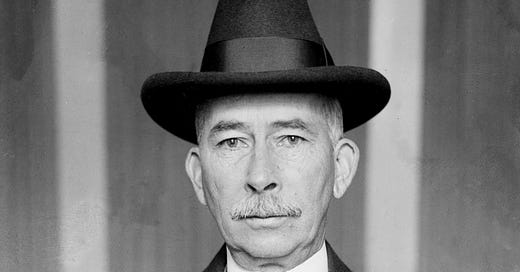



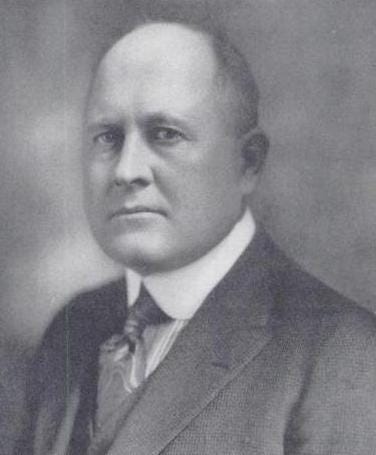
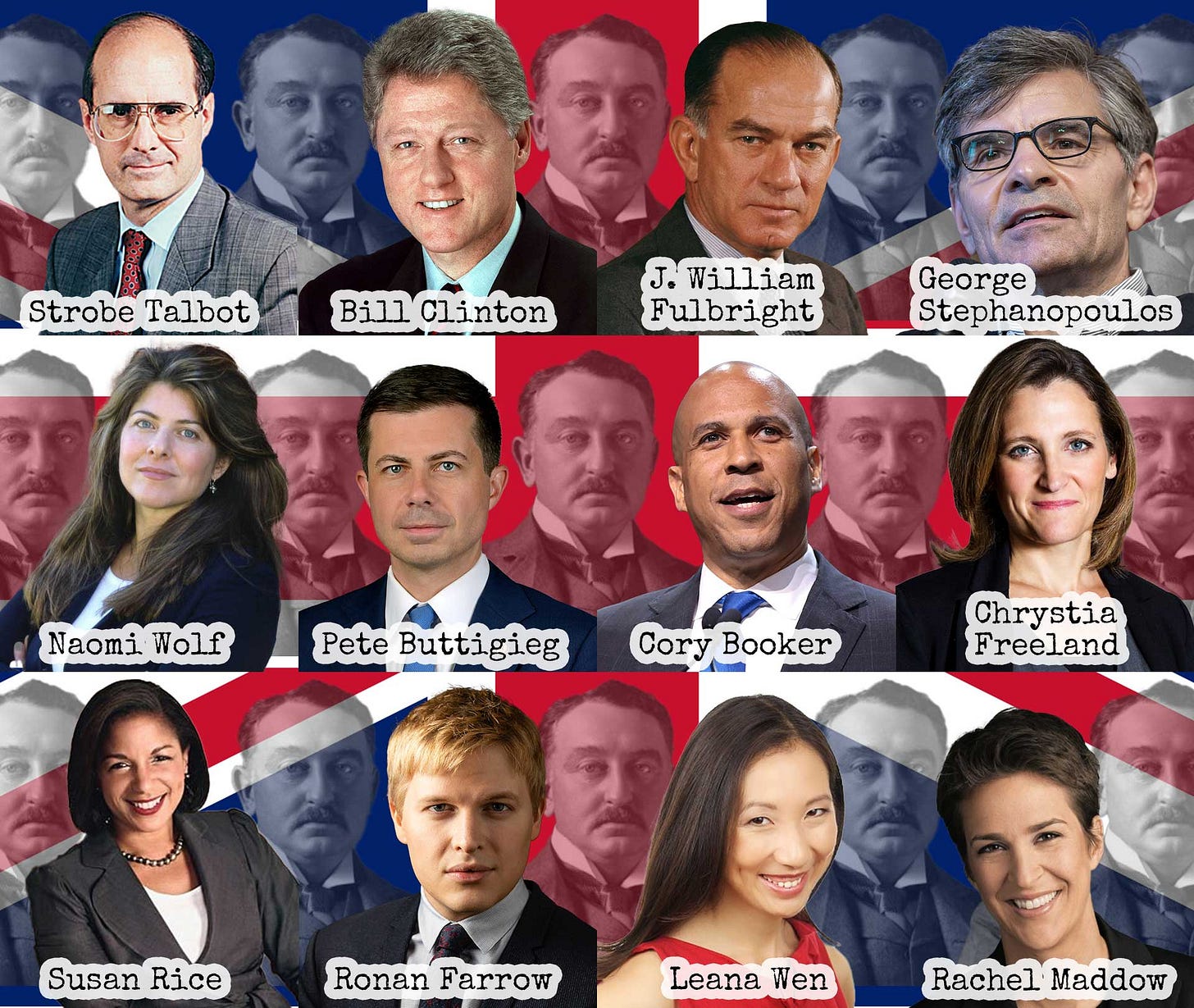
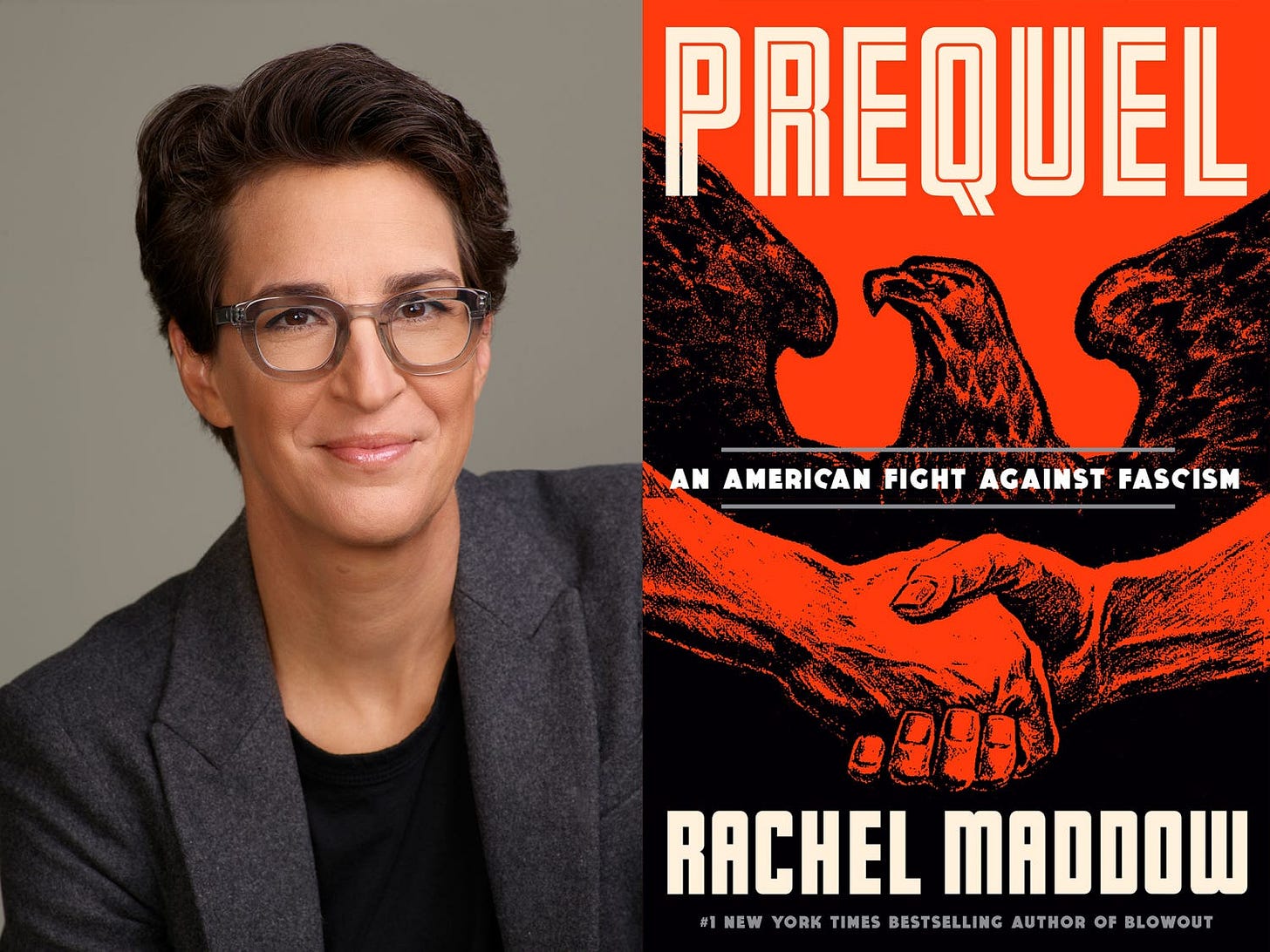
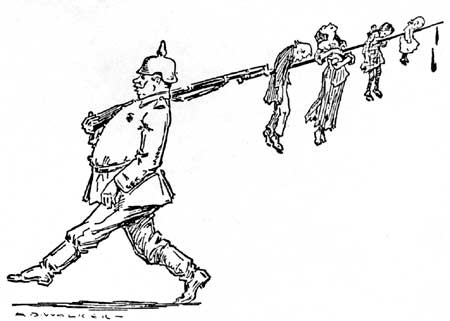
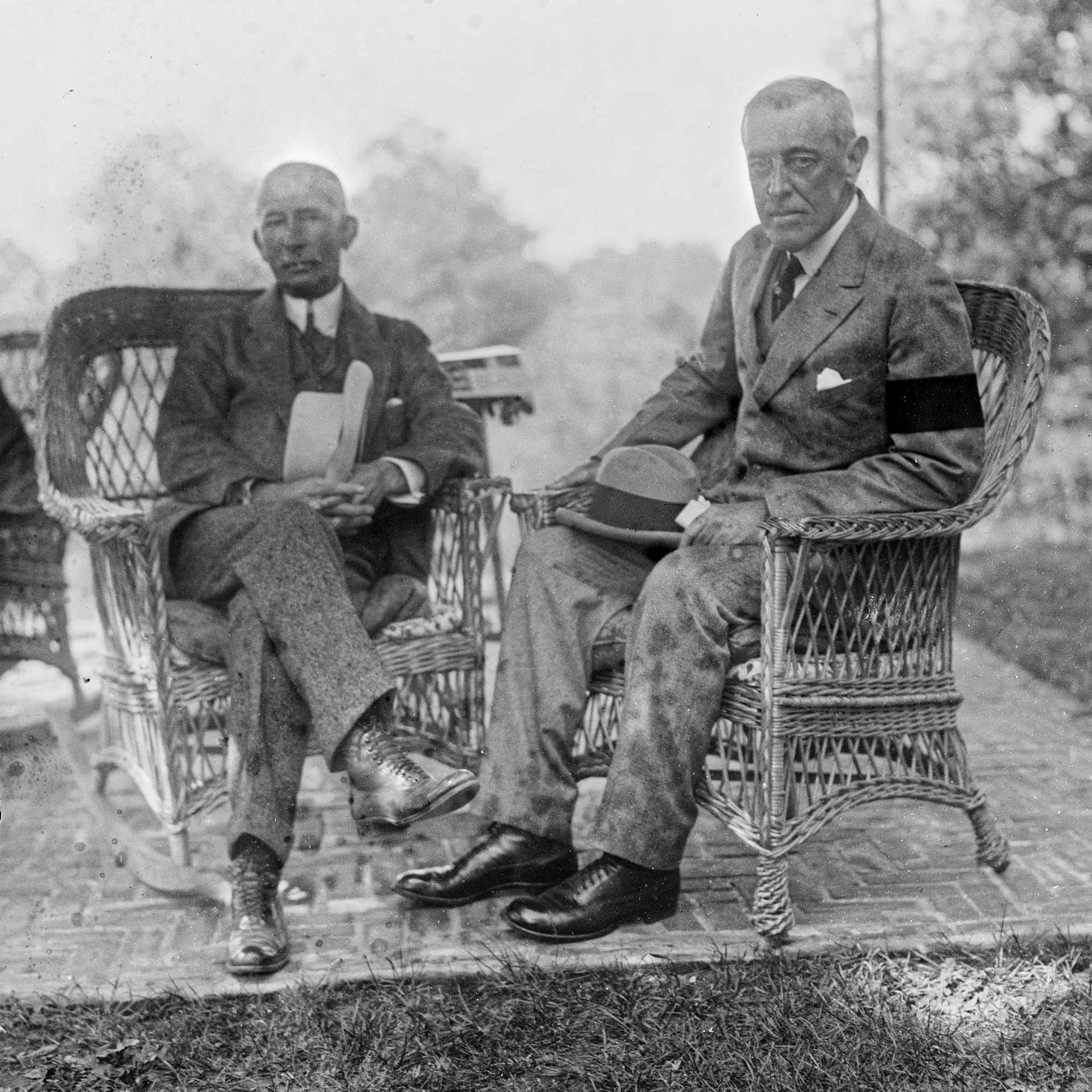

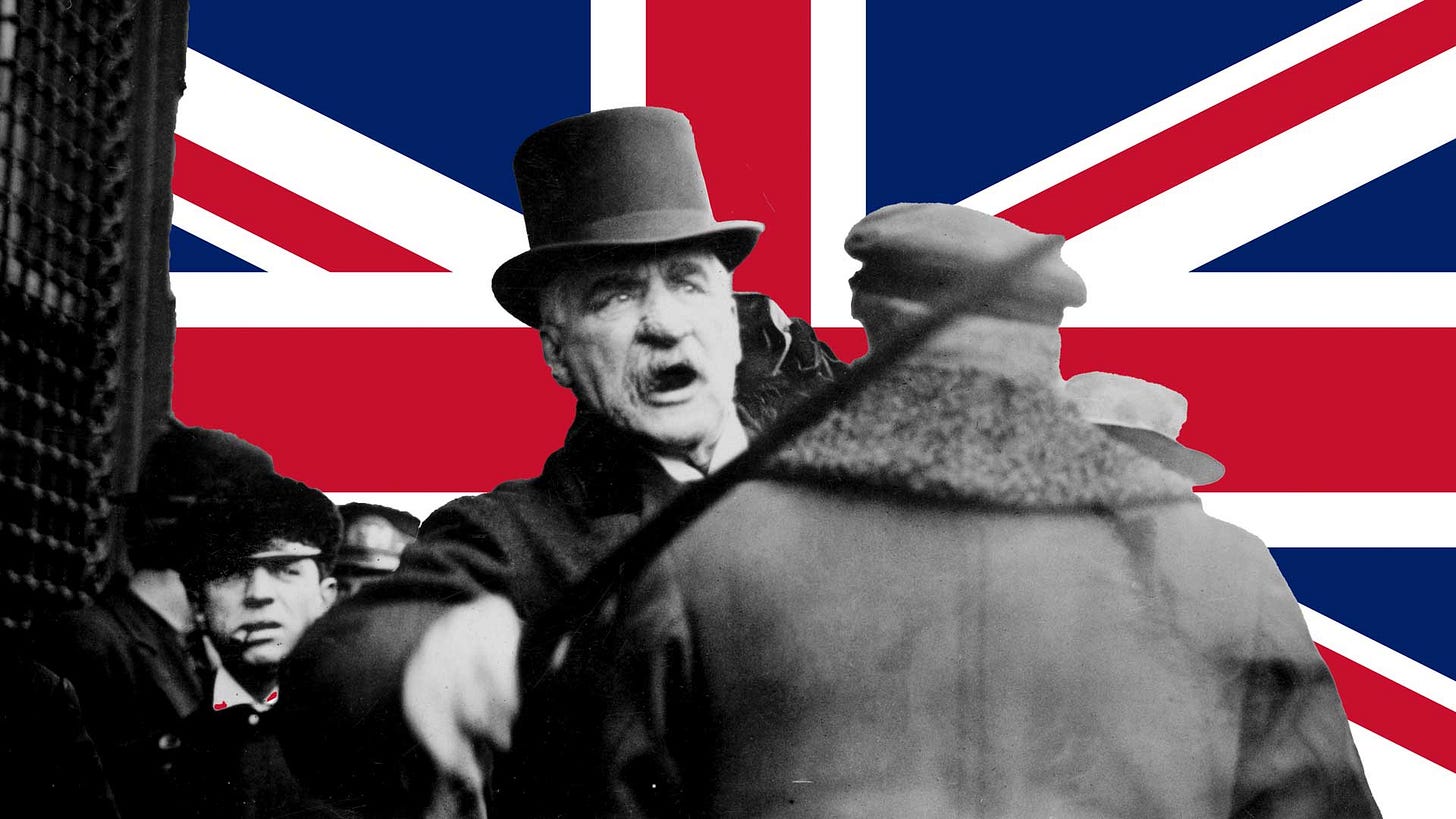
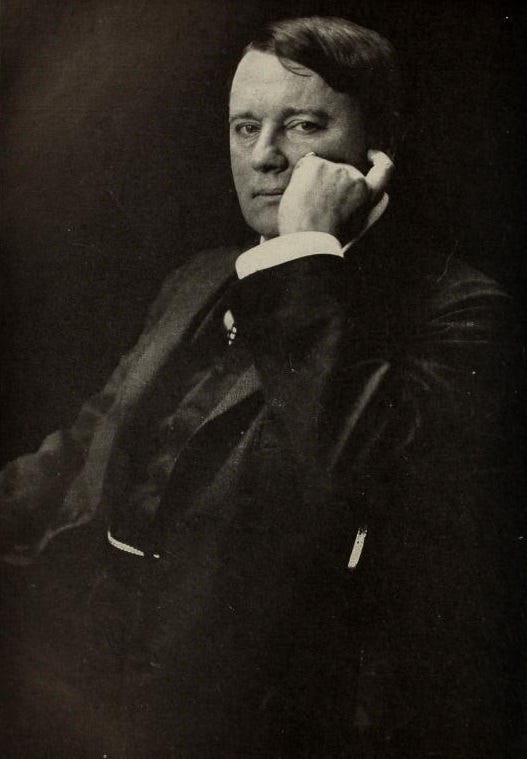
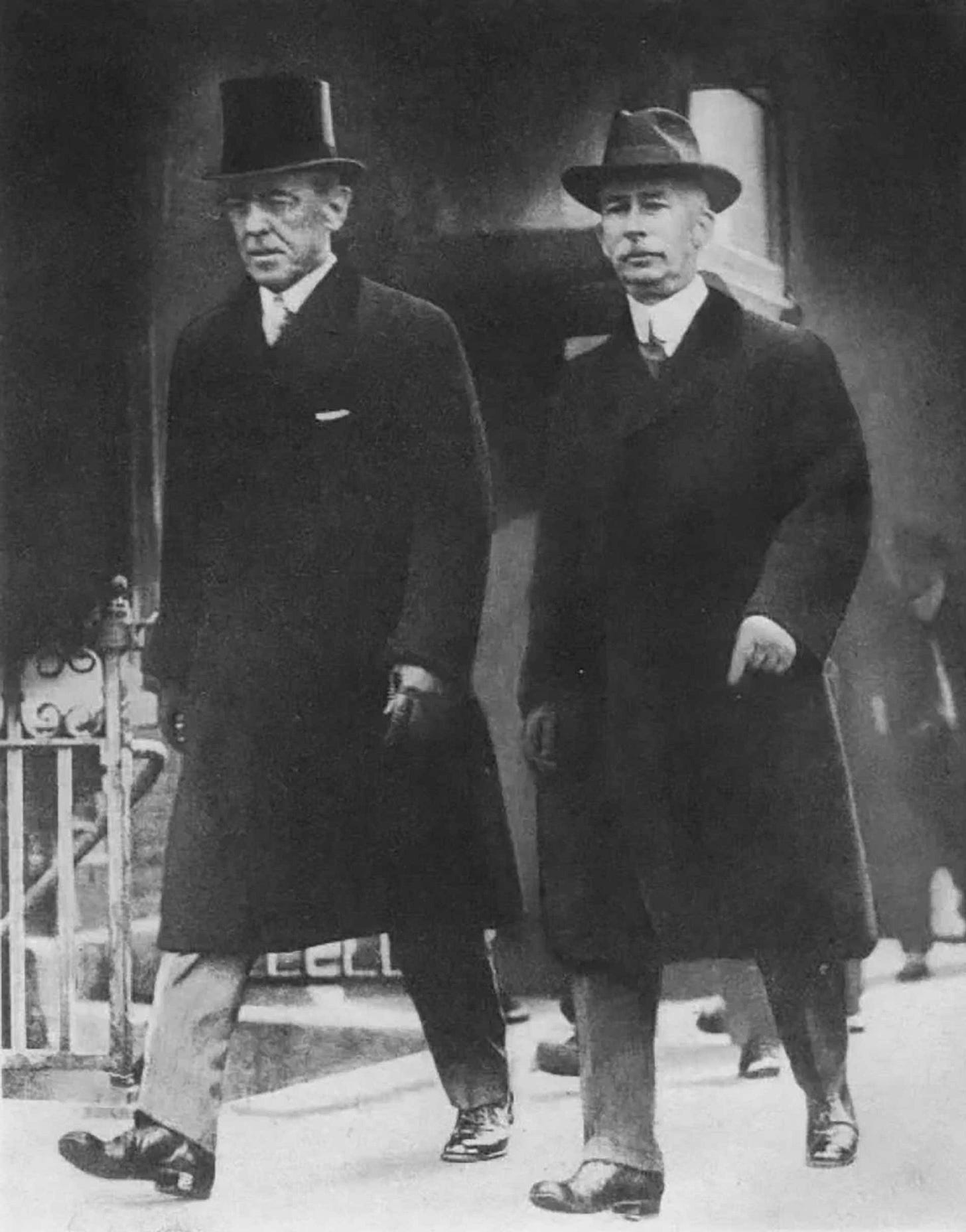
Very well written Peter. Thank you. You hit a chord with me on this one. Did a lot of research a year ago on Mr. House or should I say “Philip Dru, Administrator”. Essentially it’s his playbook where the back of the book reads: “a Utopian vision in which the title character leads the Democratic U.S. in a Civil War plutocratic East, and becomes dictator of America.”
Also found the following quote of House in “Fruit of the Poisonous Tree” by Melvin Stamper, JD (2008) p.59. Stamper’s background as a federal prosecuter is detailed in that book. He also wrote: “High Priests of Treason: The Federal Reserve”.
Quote:
“Edward Mandell House had this to say in a private meeting with Woodrow Wilson (President 1913 to 1921) from the private papers of Woodrow Wilson:
"[Very] soon, every American will be required to register their biological property in a National system designed to keep track of the people and that will operate under the ancient system of pledging. By such methodology, we can compel people to submit to our agenda, which will affect our security as a charge-back for our fiat paper currency.
Every American will be forced to register or suffer not being able to work and earn a living. They will be our chattel, and we will hold the security interest over them forever, by operation of the law merchant under the scheme of secured transactions. Americans, by unknowingly or unwittingly delivering the bills of lading to us will be rendered bankrupt and insolvent, forever to remain economic slaves through taxation, secured by their pledges. They will be stripped of their rights and given a commercial value designed to make us a profit and they will be none the wiser, for not one man in a million could ever figure our plans; and, if by accident one or two would figure it out, we have in our arsenal plausible deniability.
After all, this is the only logical way to fund government, by floating liens and debt to the regstrants in the form of benefits and privileges. This will inevitably reap to us huge profits beyond our wildest expectations and leave every American a contributor to this fraud, which we will call "Social Insurance (SSI)".
Without realizing it, every American will insure us for any loss we may incur, and in this manner every American will unknowingly be our servant, however begrudgingly. The people will become helpless and without any hope for their redemption; and we will employ the high office of the President of our dummy corporation to foment this plot against America."
SECOND SOURCE: https://www.1215.org/lawnotes/lawnotes/house.htm
Thanks for a great and fascinating article about this letter which is new to my knowledge. I’m a Scot and I’m particularly interested in the Carnegie angle where it appears he has taken on the Rhodes role.
The whole letter is written in that sneering supremacist idiom that only an old Etonian or their ilk could portray. Think David Cameron or Boris Johnston in present time. Equating the stupid “Yanks” with Scottish clans is classic. The English elites have always regarded us Scots as uneducated peasants. Carnegie must have been anathema to them. A self made man whose money and influence overcame his lack of pedigree. In Scotland, Carnegie has a good reputation as a philanthropist who brought many schools and libraries to his native country. He who controls the libraries controls the books…
As history is supposed to inform the present there are some modern UK/US links which demonstrate the ongoing synergy. There is the BAP (British American Project) which links many politicians/military/think tankers/ industrialists from both sides - an interesting guardian piece from 2004 which is looking at the subject from the UK point of view suggests CIA involvement in BAP and shows many cabinet ministers of the time involvement in the program including Peter Mandellson , Blair’s chief of staff Jonathan Powell, NATO Colonel Bob Stewart (what is it about Colonels!), Lord Robertson NATO chief, Douglas Alexander Foreign Office ( now returned in the current government ) link https://www.theguardian.com/world/2004/nov/06/usa.politics1
From a purely Scottish perspective there is a US State department soft power grooming program called the International Visitors Leadership Program which has seen many of the recent Scottish National Party (SNP) politicians in attendance, including Humza Yousaf the recently departed First Minister of the Scottish parliament and architect of the “hate speech “ legislation. This scheme involves the young future leaders visiting the US for some “experience “ and it will come as no surprise that several of these alumni were involved in the lawfare conducted against the former Scottish first minister Alex Salmond who was subjected to a Crown Office prosecution on many counts of sexual impropriety which were dismissed by the jury. This followed in the wake of the Harvey Weinstein case in the US . Throw enough mud and some will stick. For anyone who doesn’t know, Alex Salmond was the first minister who almost achieved independence (mail in vote rigging to overturn the outcome was implied and possibly exported across the pond for future refinement), so when he opined that his successor,Nicola Sturgeon was not building on his legacy and made moves to return to the scene, he was lawfared. Another analogy with the House letter is that it took an English MP David Davis, using parliamentary privilege, which is analogous to reading something into the record in congress, to expose the plot directed at Alex Salmond because the press could not print the story as the Crown Office (analogous to the DOJ) were threatening journalists with contempt of court if they named any of the plotters.
A question that occurs from the article and suggested by House (or the author) is did the US in fact give up sovereign rights by joining the League of Nations? I guess it made it easier from a UK perspective to bring the US into any conflict it desired by designating it as the world’s policeman. There’s nothing like getting your big brother to fight your battles.
Another question would be is the character Dr. House as played by Hugh Laurie in the US TV series “House “ an oblique hat tip?